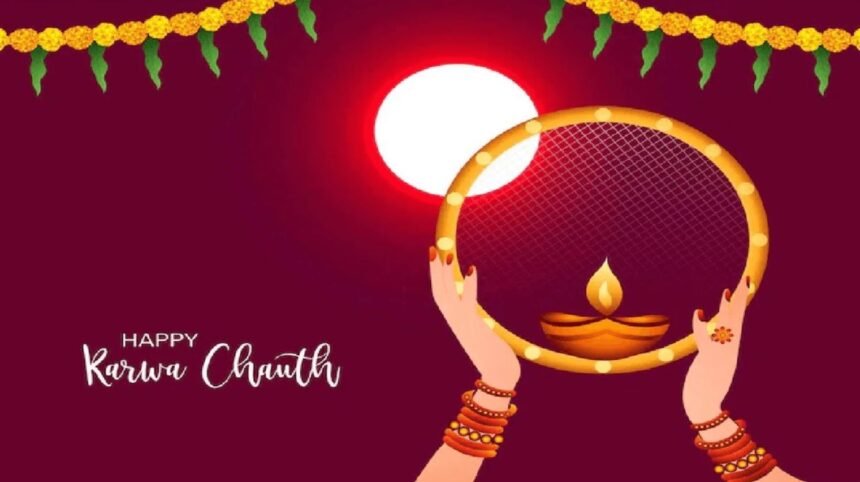Explore the historical and cultural significance of Karwa Chauth, a Hindu festival, in this comprehensive guide. Unlock the traditions, rituals, and stories behind this celebrated day.
Karwa Chauth is a significant and culturally rich festival celebrated predominantly by married Hindu women in Northern India. It is a day when married women observe a day-long fast, not consuming food or water, with the hope of ensuring the longevity, prosperity, and well-being of their husbands. This sacred ritual holds a special place in the hearts of Indian women, and its history is steeped in tradition and symbolism.

ALSO READ: The Splendid Art Of Temple Decoration During Durga Puja
The Origin and history of Karwa Chauth
Karwa Chauth has a rich historical background, dating back several centuries. The word “Karwa” refers to an earthen pot, while “Chauth” means the fourth. The festival is celebrated on the fourth day after the full moon in the month of Kartik, according to the Hindu calendar. Its origins can be traced back to legends and stories that have been passed down through generations.

The legend Queen Veervati
One of the most famous legends associated with Karwa Chauth is the story of Queen Veervati. According to this tale, Queen Veervati was a devoted wife who observed the fast with great dedication. Her severe fasting alarmed her brothers, who tricked her into breaking her fast by lighting a false moon in the evening sky. Believing it to be the real moon, Queen Veervati broke her fast, and tragedy struck her family. However, when she learned of the deception, she sincerely observed the fast the following year, which miraculously brought her husband back to life. This story has been instrumental in popularizing the tradition of Karwa Chauth.
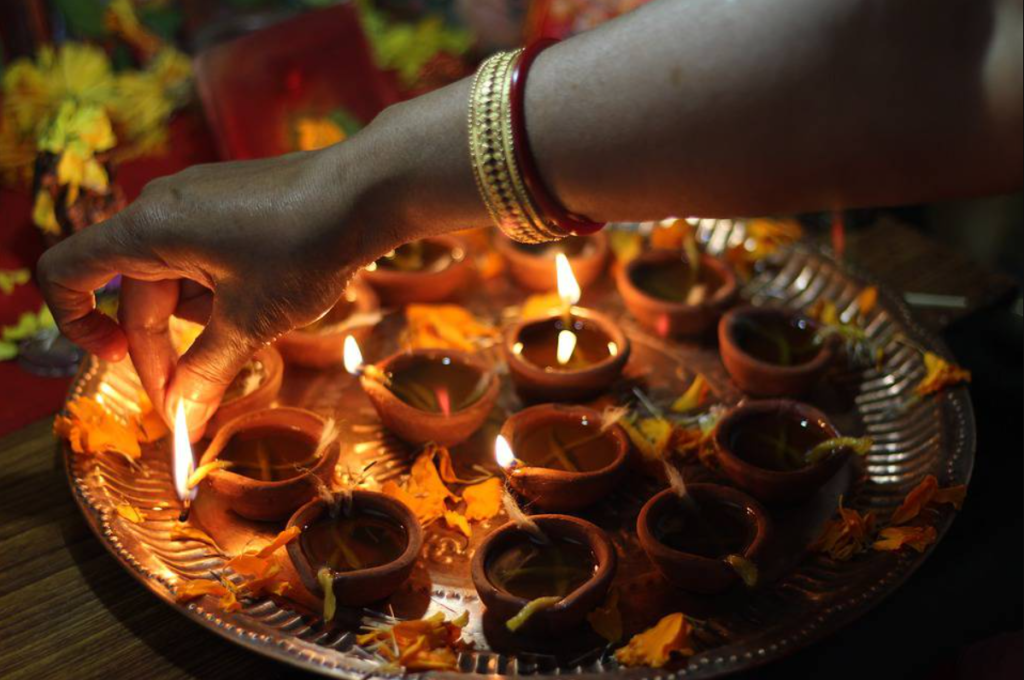
The story of Draupadi
Another legendary tale associated with Karwa Chauth revolves around Draupadi, the wife of the Pandavas in the epic Mahabharata. When Draupadi faced a crisis, Lord Krishna advised her to observe a fast on Karwa Chauth. Her devotion and determination ensured the protection and well-being of the Pandavas.

ALSO READ: The Significance Of Kanya Pujan On Durga Puja: A Timeless Tradition
Historical significance
Karwa Chauth has not only been a symbol of love and devotion but has also served as a means of social bonding among women. In ancient times, when women lived in close-knit communities, they would gather and perform the rituals together, reinforcing the bond of sisterhood. This practice continues to this day, with married women coming together to observe the fast, exchange stories, and share the joys and challenges of married life.
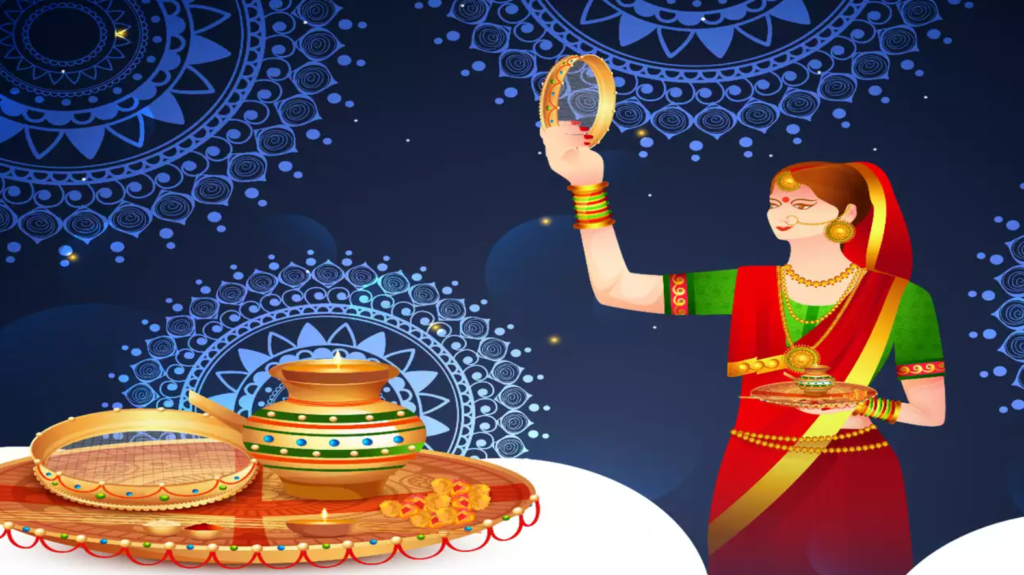
The rituals and traditions of Karwa Chauth
Karwa Chauth is observed with a set of rituals that make it a remarkable and significant festival. Here are the key traditions associated with this auspicious day.
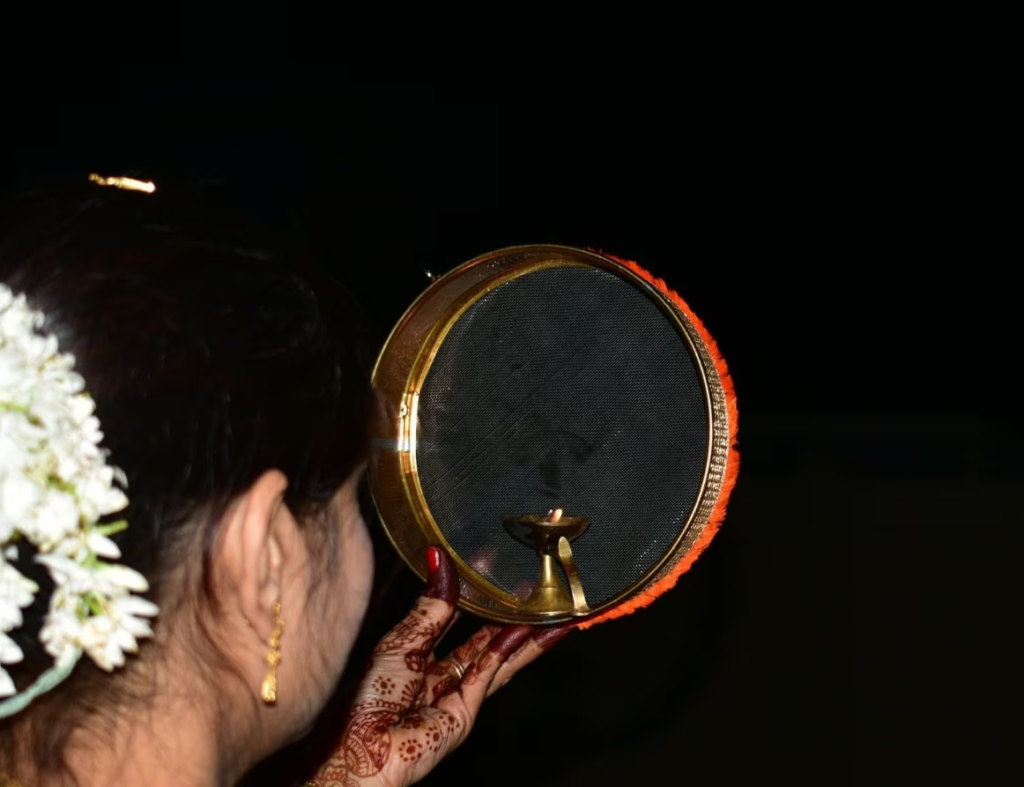
Fasting from Sunrise to Moonrise
The most distinctive aspect of Karwa Chauth is the day-long fast. Married women wake up before dawn to partake in a pre-dawn meal (Sargi), which provides them with the necessary sustenance to endure the day without food or water. The fast continues until they spot the moonrise in the evening, and after offering prayers to the moon, they break their fast.
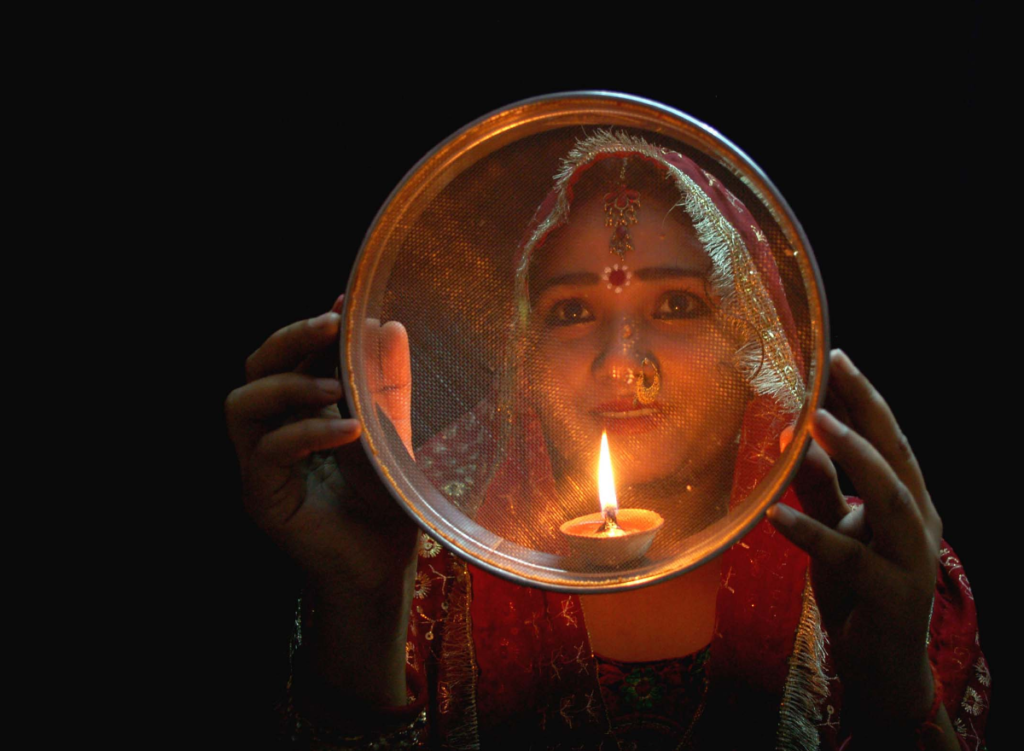
The Sacred Karwa
Women gather in the evening, adorned in traditional attire, and recite the Karwa Chauth story, which is often passed down through generations. The sacred Karwa, an earthen pot, plays a pivotal role in the ritual. It is filled with water and adorned with intricate designs. Each woman holds a Karwa and listens to the story with rapt attention. The Karwa is then passed around in a circle, and women exchange their pots, symbolizing the sharing of happiness and blessings.
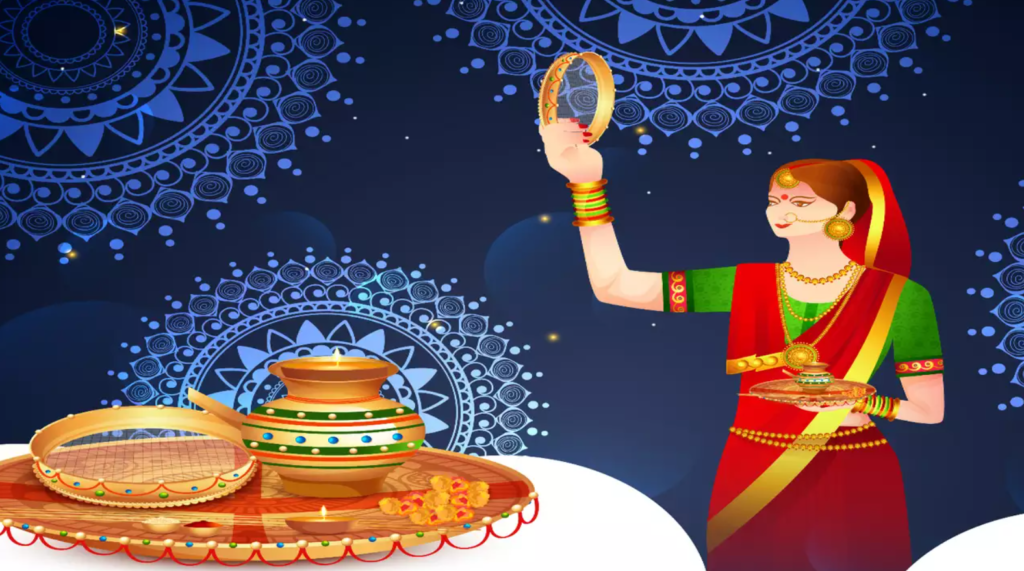
Looking at the Moon
As the evening progresses, women eagerly await the appearance of the moon. The sight of the moon holds great significance, as it marks the end of their fast. Once the moon is visible, women offer prayers and break their fast, often with the first morsel being fed to them by their husbands.
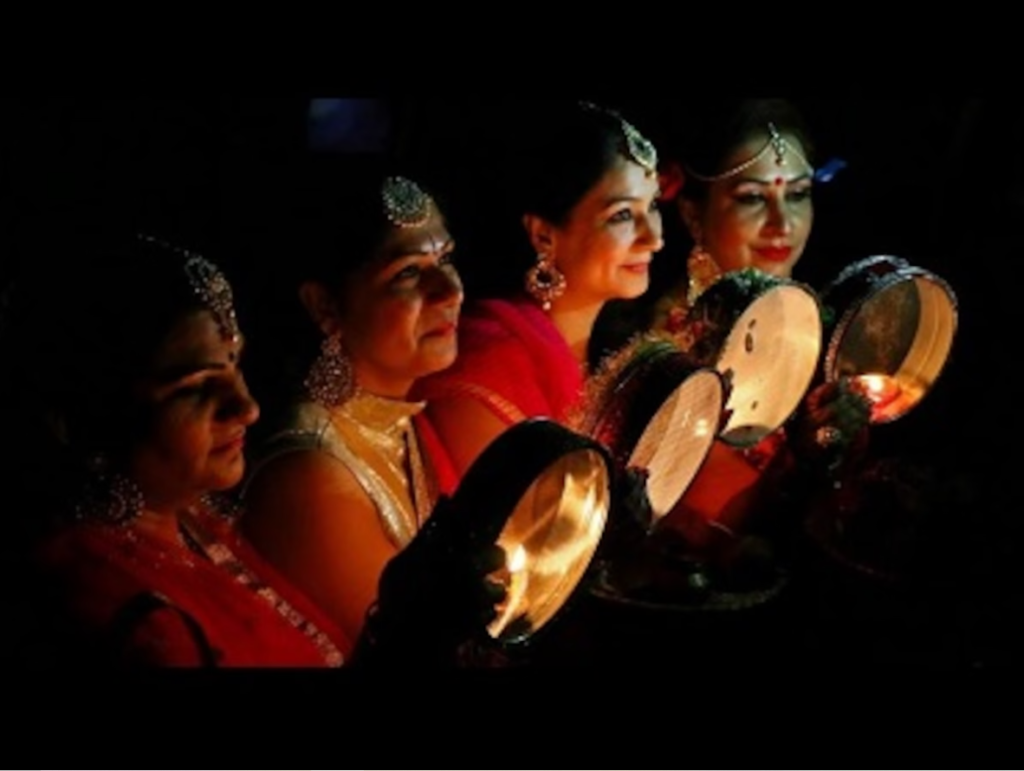
The exchange of gifts
On this auspicious day, husbands often express their love and appreciation for their wives by giving them gifts. This gesture further strengthens the bond between couples and adds a sense of joy to the occasion.
The modern relevance of Karwa Chauth
In contemporary times, Karwa Chauth continues to hold immense significance for married Hindu women. It has evolved and adapted to modern lifestyles while still preserving its traditional essence. The festival not only strengthens the marital bond but also serves as an opportunity for women to come together, celebrate their relationships, and empower each other.
Karwa Chauth is a symbol of unwavering love, devotion, and the enduring spirit of Indian culture. It reminds us of the beauty of traditions that have stood the test of time, while also embracing the changes of the modern world.
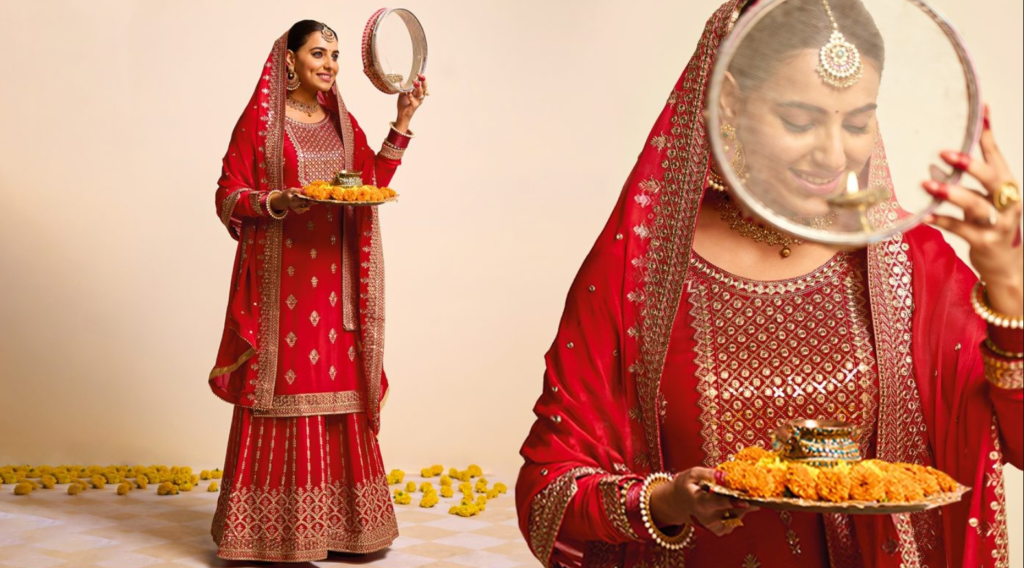
Karwa Chauth, with its rich history and cultural significance, is a festival that celebrates the sacred bond between husband and wife. The fasting, rituals, and legends associated with this day make it a unique and cherished occasion for married Hindu women. It’s a reminder of the enduring love and devotion that continues to thrive in the hearts of millions.
Click here, to check HNN’s latest post.
ALSO READ: The Celebration Of Ram Navmi vs Durga Navmi: Unveiling The Rich Tapestry Of Traditions
Image Source: Google







